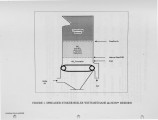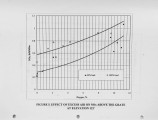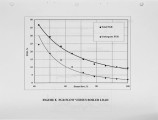| OCR Text |
Show ACKNOWLEDGMENTS Many spons?rs .played important roles in the development of the METHANE de-NO X proc~ss applIcatIon to coal-fired stoker boilers. The authors wish to acknowledge the City of Richmond for supplying the natural gas line at no cost to the project and the financial support of Columbia Gas Distribution Companies, Consumers Power, Indiana Gas Company, Inc., North Carolina Natural Gas Corporation, and Texas Gas Transmission Corporation. Plant personnel at Cogentrix of Richmond warrant special mention for allowing interruption of commercial operations to enthusiastically support and vigorously assist in the implementation of the retrofit. REFERENCES 1. U.S. Patent No. 5,205,227, April 27, 1993. 2. U.S. Patent No. 5,020,456, June 4, 1991. 3. "SNCR Experience with Coal Fired Boilers and Fabric Filters", Hall, David and Bonner, Thomas. Paper presented at the Institute of Clean Air in Washington, DC, 1994. 4. ''NOx Control System at Cogeneration Plant Plagues Downstream Components" Power, December, 1994, Page 42, Vol. 138, No. 12 5. "Gas Rebuming GRI Program Overview," Pratapas, J. M. International Workshop on Gas Rebum Technology, Malmo, Sweden, February 7-9, 1995. 6. "Pilot-Scale Assessment of Natural Gas Reburning Technology for NOx Reduction From MSW Combustion Systems, Abbasi, H.A., Khinkis, M.l, Itse, D.C., Penterson, C.A., Wakamura, Y. and Linz, D.G. Presented at the International Conference on Municipal Waste Combustion, Hollywood, Florida, April 11-14, 1989. 7. "Field Evaluation of METHANE de-NOX at Olmsted Waste-To-Energy Facility," Biljetina, R., Abbasi, H.A., Cousino, M.E. and Dunnette, R. Paper presented at the 7th Annual Waste-To-Energy Symposium, Minneapolis, Minnesota, January 28-30, 1992. Afrc96.doc 8 |






















